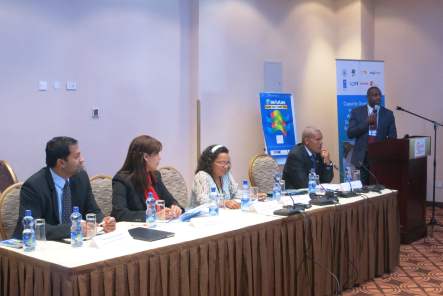With funding from Austria, DFID, Danida, CDKN and the Infrastructure Consortium for Africa (ICA), based at the African Development Bank (AfDB), the initiative supports the implementation of the African Union (AU) and African Ministers Council on Water (AMCOW)’s Water, Climate and Development Programme (WACDEP) implemented by Global Water Partnership (GWP) and partners. The collaboration by GWP and UNDP-GEF contributes to the objectives of the National Adaptation Plan - Global Support Programme (NAP-GSP) funded by the Least Development Climate Fund (LDCF). NAP-GSP is led by UNDP-GEF and UNEP-GEF in collaboration with GWP, FAO, WHO, IFAD, UNITAR, GEF, and UNFCCC.
The objective of the capacity development initiative is to develop the capacity of planners and technical officers to identify, appraise no/low regrets investment options and integrate these into national development planning processes and plans. The primary target audience are government planners across line ministries such as Economic Planning, Finance, Water Resources, Agriculture, Environment, Energy, Health and Infrastructure.
The initiative is expected to develop the capacities and knowledge required by planners and decision makers in Africa and enhance skills in:
- Applying economic analysis to develop an economic case to high level policy makers on the importance of water security;
- Mainstreaming no/low regrets investments into development planning processes;
- Using economic analysis tools and methods to appraise investment options including cost benefit analysis, cost effectiveness assessment and others;
- Project preparation and access to climate finance and other funding sources;
- Undertaking climate impact assessment, climate screening and robust decision making;
- Designing of financing and investment programs for climate resilient development.
The initiative will be delivered through interrelated capacity development activities at regional and national level. This will be complemented by knowledge management and experience sharing including research on priority issues related to economic appraisal and investment definition.
To read the full article, kindly download here or click on the related link.
